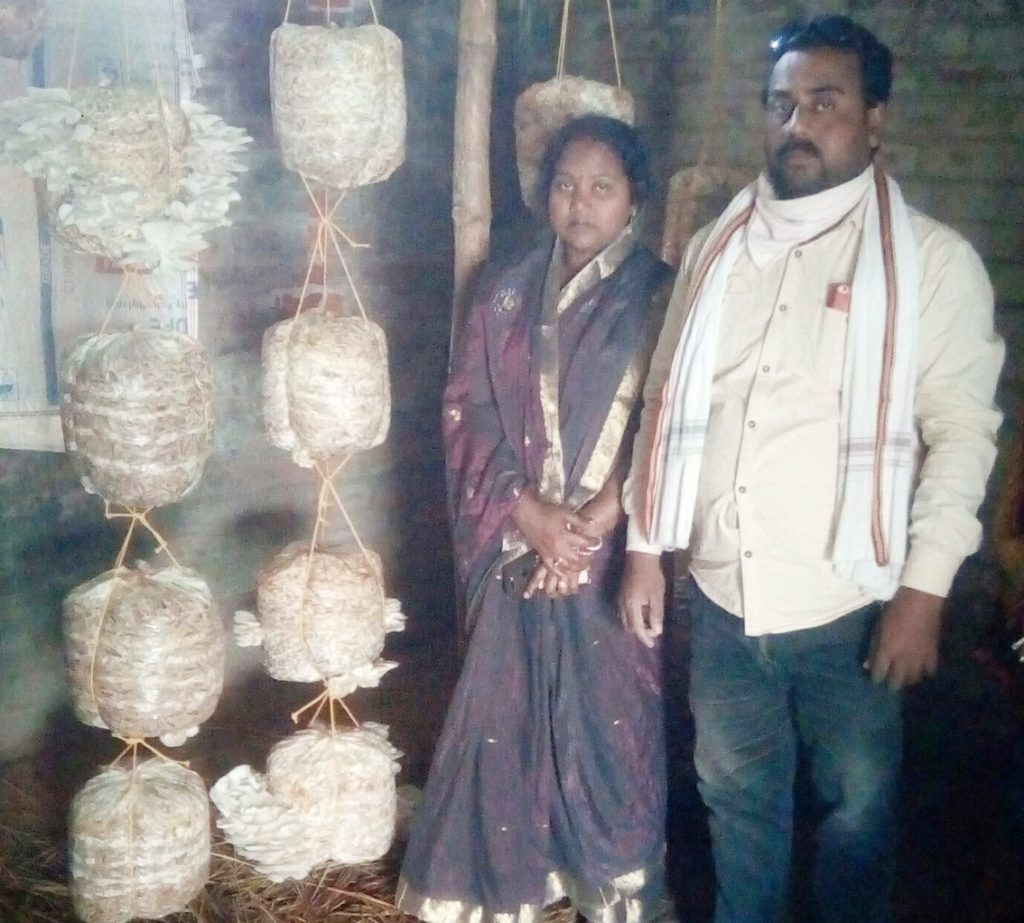Rupsa: Instead of running after jobs, a couple in Rupsa area of Balasore has become self-sufficient by taking up mushroom farming.
Production of ‘dhingri’ variety of mushroom has earned them an identity in the area. Most importantly, the couple – Bidyadhar Behera and his wife Nirupama Behera of Kasipada village— has also guided 50 other families in mushroom farming in various parts of the state.
It was their sheer determination and hard work that has brought them a scope of earning.
“After my graduation in 1999, I did not like running after jobs. I tried various businesses to run the family and remained associated with social service meanwhile,” Bidyadhar said.
He came in contact with a mushroom farmer and visited several mushroom farms at Bangiriposi, Baripada, Sunagadia and Rajabagicha. He was inspired by the mushroom cultivation.
Then, he took advice of his wife about mushroom farming. He received a 15-day training on mushroom cultivation organised by Gujarat-based Tattwam Mushroom Pvt Ltd.
“Dhingri variety of mushroom can be grown throughout the year and it has medicinal properties. So I wanted to grow it,” said Bidyadhar.
The couple started it in a small way in December, 2019 for their own consumption purpose only. It was a success.
The couple expanded the farming.
“You have to spend Rs 50 to 55 for a bed of mushroom. For one bed, there is need for 50 gm of seeds, straw, some chemicals, polythene sheets and water. In every two months and 10 days, one bed can produce 2 to 2.5 kg of mushroom in three phases. And a kilogram of mushroom is sold for Rs 100 to 130,” he added.
Guided and inspired by the couple, women of 50 families have been doing mushroom farming at Kasipada, Talaberhampur, Mirigimunda, Rupsa, Bamda, Manitri, Managobindapur and Kuliana.
Nirupama said: “Aside from home chores, women can easily do mushroom farming to supplement the family income. Even dry mushroom is sold for Rs 700 a kg. If a person lays 10 beds, s/he can cultivate eight quintals of mushroom.”
Bidyadhar concluded, “My aim is to economically empower 10,000 people through dhingri mushroom farming in the state.”
